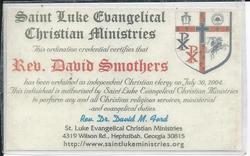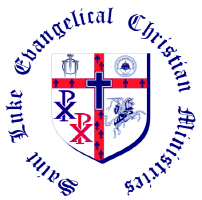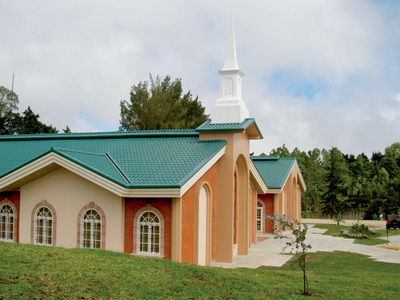| | |
|
The mission of our church is tri-fold, with each element being of equal importance to the other. Our mission is evangelization, ministering, and equipping. Each of these elements is addressed below. 1. Evangelization. The First International Church Of The Web is committed to using the internet for world-wide evangelization. It is our belief that the internet represents the single greatest evangelizing tool ever created by mankind. We feel it is our duty as Christians to use this exciting new medium for the glory of God, and to tell the world the Good News that Jesus Christ is Lord. 2. Ministering. As a church, we are committed to ministering to members and visitors to our church. To this end we have numerous interactive elements on our website, including a prayer request message board, two church chat rooms with regular weekly fellowship chat sessions, and our bulletin board for members to engage in threaded discussions. In additon, many of our members are linked together through ICQ instant communicator, and can be reached at any time for ministering and encouragement. It is for this reason the ICQ communication panel is on the front page of our website. 3. Equipping. The First International Church Of The Web is committed to serving as an equipping ministry for Christians around the world. Many hours are spent in finding the highest quality online Christian resources, including online Bibles in many languages, sources of free correspondence and e-mail based Bible lessons as well as other Bible education resources, and tools for Christian websites. Our church is also committed to providing free online legal ordination for those seeking to serve as clergy, free independent church charters for new Christian ministries, and other free clergy resources. As the founding church of The International Alliance Of Web-Based Churches we are also committed to maintaining a united network of online churches joined in their efforts to use the internet to spread the Good News. The First International Church Of The Web is committed to this tri-fold mission. It is our certain belief that we have been called by Our Lord to start and maintain this ministry, and by serving Him in this way we can best serve the people of the world. The Rise Of the Non Denominational ChurchPosted on June 14, 2012Changing religious and cultural backgrounds are causing Christians to be increasingly interested in joining and worshiping at non denominational churches over their old denominations.
Christianity has been divided by denominations for centuries. However, a recent trend has appeared where spiritual Christians are choosing to discard those divisions in favor of non-denominational churches. In 1990, fewer than 200,000 Americans claimed non-denominationalism as their religion; by the year 2008, that number had grown to well over 8 million. What sparked this trend? Why, after centuries of division into separate and autonomous denominations, have so many Christians begun drifting away from the separations that have served to define their faiths? The trend toward nondenominationalism isn’t entirely surprising, considering that our culture as a whole has shown an increasing tendency toward acceptance and tolerance; non-denominational churches often follow a policy of accepting followers from a wider range of religious backgrounds. Freedom from strict church doctrine and adherence to often outdated ritual often attracts younger parishioners; lack of labels often draws people who feel they have been labeled as outcasts or undesirable by societal norms. With an increasing number of interracial and intercultural marriages, frequently between two people of differing religious beliefs, the diversity often found within a non-denominational church can be very attractive to those who don’t feel comfortable in the old, conventional religious groups. Many people claim that they find more spiritual fulfillment in a church where Christians of any denomination are welcomed. There is also argument that the Christian church was always meant to be non-denominational. There are no such divisions within the Bible itself, certainly; a passage from Paul’s letters to the Romans in the New Testament claims that the Bible offers salvation to everyone who believes in it. Others argue that the church was always supposed to be united under God, rather than divided into different sects. These people claim that each sects’ history, traditions and beliefs serve to distract from the messages and moral principles espoused by Christianity, and thus do more harm than good. Many of the tenets of these denominations have no roots in the Bible at all, but rather in tradition and decrees by their governing bodies, or principles held by their founders. The most literal analysis of the word “denomination” shows that it is the very definition of division. In fact, this is how Merriam-Webster’s online dictionary defines the word. It could easily be reasoned that, by their very nature, denominations promote division among a religion that is supposed to be united, as one, under the same God. Even as far back in history as the sixteenth century, there were people like Martin Luther, the theological scholar and founder of the Protestant reformation, who believed that the existence of denominationalism went against biblical purposes. With this in mind, it can hardly be surprising that Christians today can read the Bible and follow the same logic that Martin Luther himself did; it is possible to be a true Christian without wanting to participate in denomination rituals and politics. While it is true that many denominations were founded in good faith and with the best of intentions for following the word of God, the draw of non-denominationalism may very well be not only its tolerance and acceptance, it may be its foundations in the nature of Christianity and the Bible itself. Universal Life Church. |
David Smothers
Phone:407-733-6269 
The First International Church Of The Web, is a Christian church, based on the Bible and its teachings, and committed to spreading the Gospel of Christ. We have an active membership of thousands of Christians around the world. Membership in our church is free, as are our ordinations. In addition, The First International Church Of The Web is itself a ministry of our parent ministry,Saint Luke Evangelical Christian Ministries, an emerging church fellowship located in Hephzibah, Georgia, and your ordination has the full backing of Saint Luke's. So, when you've been ordained by The First International Church Of The Web, you can rest assured that your ordination is from an established, Christ-centered church. . Archives
October 2018
|




 RSS Feed
RSS Feed
